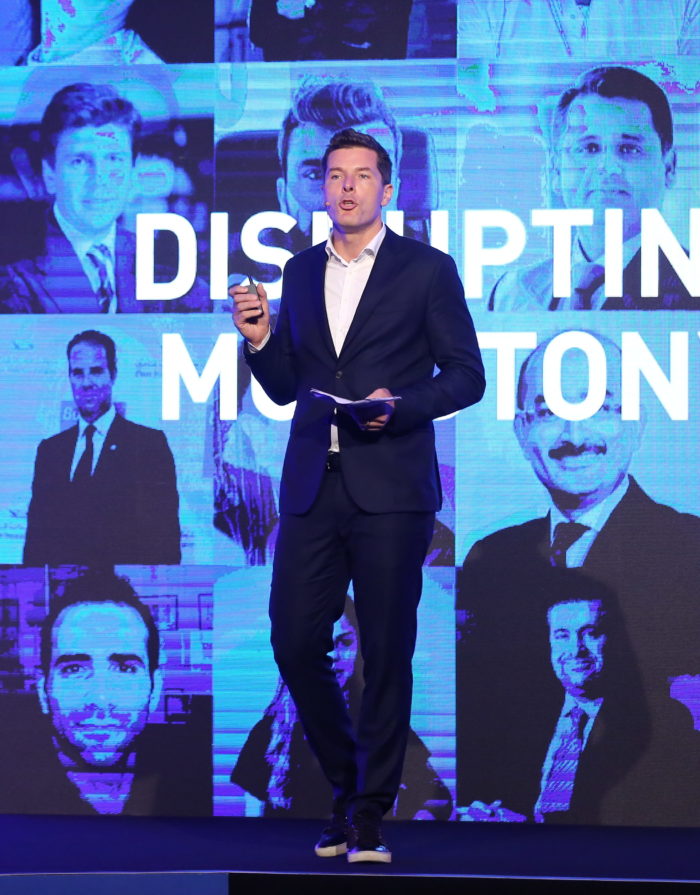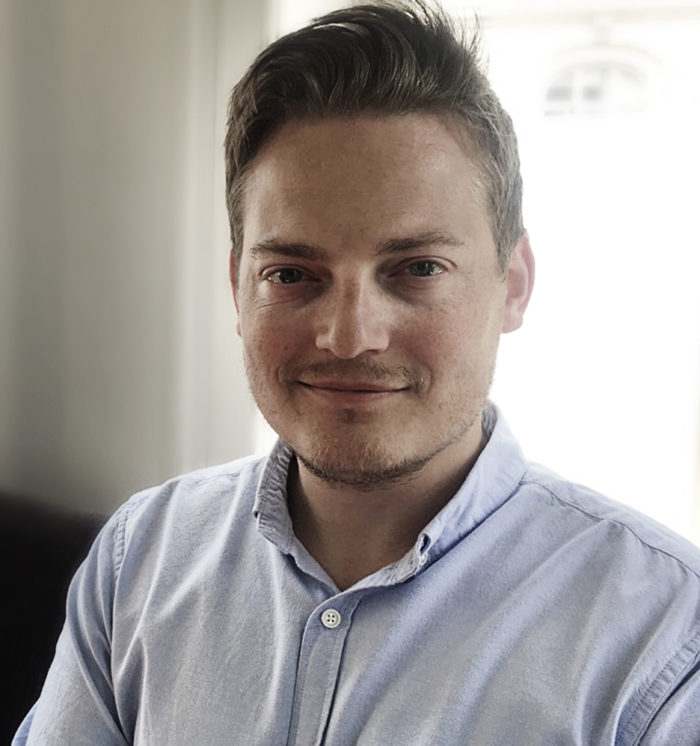Why Danish Tech Startups Feel at Home in Brooklyn
The entrepreneurs (not the pastries) have arrived, in pursuit of talent and a major market
Mik Strøyberg has been a pied piper guiding fellow Danes to the friendly startup land of Brooklyn (Photo by Robert Carlo New York)
You may not find it on tourist maps yet, but the Wythe Avenue corridor in Williamsburg has a new nickname: Little Denmark.
The notion comes from a new class of digital entrepreneurs who are embracing Brooklyn as a base for reaching American consumers. They’re immigrants from Denmark who are bringing ideas, money, and jobs to the borough in yet more evidence that Brooklyn is emerging as an important tech center. “It’s a great place to live and it’s a great entry point into the U.S. market,” said Mik Strøyberg, the pied piper for these firms setting up shop in an old brass factory.
Strøyberg’s firm, Lemonsqueeze (for the trope about making lemonade out of lemons) guides startups through their American rollouts, a process that is overwhelming for many European firms. The company has worked with 56 companies, helping them get a U.S. presence, resources, and talent. Strøyberg moved his shop two years ago to 185 Wythe Ave., which a half dozen Danish firms now call home. “I have always been a pioneer,” he said. “Since I came here, a lot of things have happened.”

Strøyberg in his Williamsburg office (Photo courtesy of Lemonsqueeze)
While finding the large space was a primary motivation for coming over the river, he was pleasantly surprised to find the level of talent that was available, given how difficult recruiting can be for Danish startups back home. The Danish unemployment rate is slightly lower than the 4.4% in the U.S. and well below the European Union rate of 8%. “We wanted to hire in our own country, but it was impossible,” said one of the founders of Clio Online, a Copenhagen tech-based education company, to the New York Times. “We still have vacant positions here, and we can’t find anyone to take them.”
Lemonsqueeze’s success led to it being purchased in February by Knotel, a co-working company that offers “headquarters as a service.” Knotel has 12 locations in Brooklyn as well as Manhattan, where Lemonsqueeze now has its main office. It’s a deal Strøyberg says will broaden the offerings of both companies. Besides providing Danish firms administrative guidance, Strøyberg has lured companies with the promise of a smooth landing in the giant marketplace of the U.S.
Brooklyn’s Appeal
Providing a space in Brooklyn to accelerate their dreams is part of the allure. “Brooklyn reminds me a lot of home, Copenhagen,” said Nicolai Afseus, co-founder of Zigna, which produces a real-estate sales app. “The people are a little more open to each other than in Manhattan where it’s so commercial. I feel like I can make a personal connection here.” Launched in Copenhagen, Zigna provides the photographers and the technology to provide an alluring presentation for home sellers. From its U.S. headquarters in Williamsburg, the company is rolling out a services that produces images for digital walkthroughs, 3-D imaging and other fresh ways of selling properties. “We have been amazed by the quality of photographers in Brooklyn,” Afseus said.

Thomas Sehested, co-founder of GAN Integrity Photo courtesy of GAN Interactive)
One of the biggest recent Lemonsqueeze successes was GAN Integrity, a company that sells a compliance-management software that raised $9 million in February and is the information supplier to the Business Anti-Corruption Portal funded by five European countries. Before starting the company, CEO Thomas Sehested had created an anti-piracy business for movie studios that he sold to Thomson Reuters and found himself struggling to build a digital business on the West Coast. “I ended up in San Francisco and it was getting too heated,” he said. “Attracting talent was getting to be really hard and very, very expensive.”
He had known Strøyberg from Copenhagen, where Sehested had been best known as a windsurfing world champion (there is a very lively windsurfing scene along the the Baltic Sea coast). Sehested had never been to Brooklyn before, but found it to be ideal for a growing digital company. “Everything we needed was in Brooklyn,” he said. Others agree. “It has a community feel to it,” said Afseus. “It is a lot like Copenhagen where we see each other and we’re all interested in seeing each other succeed. But, we all are very frugal as well and this is a much more affordable way to get into this market.”
Diversifying Clientele
Not all the Lemonsqueeze companies are Danish. Expectful, a digital platform and app helping expectant moms deal with the stress of pregnancy through guided meditation, is American-grown, but is using Strøyberg’s skill and connections to grow the business. Its community lead, Anna Gannon, was a yoga instructor in Soho who lost her job seven months into pregnancy and, on a lark, started using the app. “I ended up using it so much, they offered me a job,” she said. She offered her own endorsement of working at the Brooklyn office over conducting yoga classes in Soho. “The quality of life is so much better,” she said. “I feel so much more productive.”

Zigna founder Nicolai Afseus (Photo courtesy of Zigna)
These new Brooklynites may refer to it as Little Denmark, but for providing the cuisine of home, it’s no Little Italy. Afseus says he always checks in with other Danish immigrants when he’s making a trip back home to see if he can bring back any of the delicacies he can’t get here. Invariably, a care package includes Pålægschokolade, unpronounceable to Americans, but essential to the Danes (it’s thin strips of Nutella-like chocolate that are placed on white bread for breakfast).
But, whatever you do, don’t mention the danishes served at Brooklyn coffee shops to this group. “Trust me,” Afseus said, “those aren’t Danish.”













